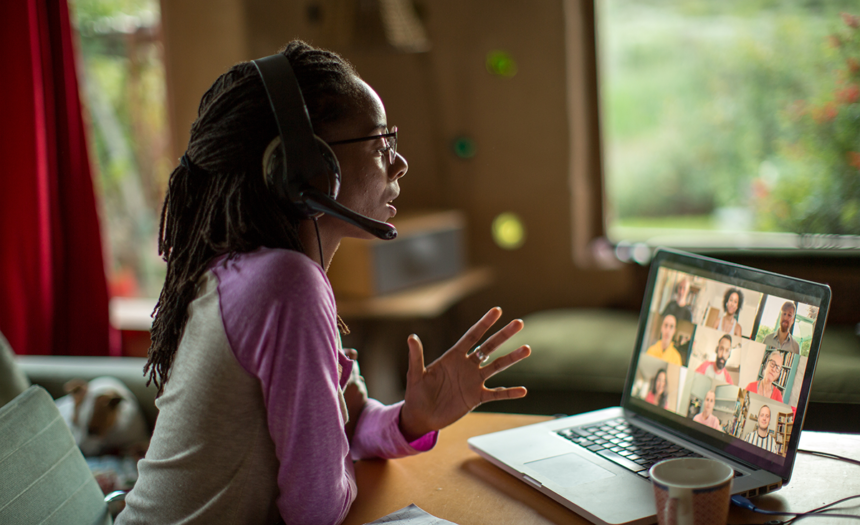We’ve all heard the adage, “You have six seconds to make a first impression.”
In an instant, we can meaningfully connect with someone or be banished to their “I never want to talk to that person again” mental bucket.
Amazing the power of a simple moment.
But what causes these vastly different outcomes? Is it our hair, our clothes, our smile (or lack thereof), or something else altogether?

Our external appearance is undoubtedly a factor. Everything about us tells a story. Our scuffed or polished shoes say one thing. Our pressed or wrinkled shirt says another. Without thinking, we meet someone and pull together these signals into a story about who the person is.
In addition to our external appearance, potent intangibles enhance or torpedo our first impressions. Above all is how we make someone feel. If we make a person feel significant, if we exude warmth and positivity, if we’re engaged and authentic, we make a connection. If not, we don’t.
These simple equations over some insight into this dynamic:
- Bad Appearance + Poor Intangibles = No Connection
- Good Appearance + Poor Intangibles = Bad / Subpar Experience, Limited Connection
- Good Appearance + Good Intangibles = Sublime Connection
But what happens when a massive shift occurs, and we meet more people online than in real life? And our digital presence takes center stage?

Our New (Digital) Normal
Over the past year, every new business acquaintance we’ve made we’ve seen only from the shoulders up on Zoom or merely heard their voice over the phone. They’re floating heads on our laptops — present for the briefest of moments during our call, and then — poof! They’re gone as soon as the tab is closed.
We know our appearance matters from the shoulders up. We consciously focus on exuding warmth and being present, but that effortless, immediate connection that typically forms in a in real life (IRL) meeting is elusive. When we are trying to make a connection with others, our brains tend to seek two vital qualities: trustworthiness and credibility. Unfortunately, establishing them when we haven’t interacted with someone in person is difficult. That’s just human nature.
So to Google we all go, as Google is the keeper of all secrets and the answerer of all questions. Who is this person? Can I trust them? Should I? Are they legit? Is their business? Our new contacts are consciously combing the internet for information about us and subconsciously replaying moments from our interactions with them to fashion the disparate pieces into constellations, in hopes of understanding who we really are and whether or not they can trust us.
Shaping Your Narrative
If someone said, “I Googled you,” how would you feel? Confident? Calm? Panicked? Fearful? Would a person who does an online search on you find a carefully curated collection of pictures, articles, and testimonials? An unpredictable smattering of whatever the internet happened to pull together? Or would they find nothing at all that actually relates to you?
At the beginning of the COVID-19 pandemic, one of our clients worriedly asked us, “How do we build trust with new prospects if we can’t meet them at conferences and kick back and have a chat over a meal?” We want to share with you what we told her.
A digital presence that truly represents and reflects who you are can help bridge that gap with a newfound acquaintance. That presence works tirelessly on your behalf, 24/7, answering every query Google throws at it. It can be an effective tool in building trust and helping people get to know you.
But please don’t worry: You don’t need a massive social media following, and you don’t need to fritter your days away endlessly doom scrolling, liking, sharing, tweeting, and commenting. We’re simply talking about defining your desired digital presence and establishing a sustainable infrastructure for cultivating it.

Five Effective Tactics
You have tremendous opportunity, literally at your fingertips, to shape and enhance your digital presence. We recommend starting with these five approaches.
1. LinkedIn
The level of control you have over your LinkedIn profile makes it an especially easy place to start. The following are some simple ways to begin polishing your profile.
- Select a meaningful banner image. It could be a picture of something important to you or a graphic that represents your brand / company. Your banner image is a subtle but powerful way to provide context about who you are and what you value.
- Update your headshot. Make sure it’s clear, professional, and showcases you the way you want to be perceived.
- Revisit your title. Add some description to it so that people can better understand who you are. Remember: You’re more than a job title.
- Clarify and confirm your contact info. Make it easy for people to get a hold of you.
- Streamline your “about” section. A short and snappy bio is gold.
- Edit your experience. Keep it concise but thorough.
- Add (more) personal recommendations. Ask trusted people in your network to review you or your business.
- Customize your public profile URL.
Great examples for inspiration include:

2. Crisp Content
Creating content and publishing it online positions you as an expert and thought leader. This is immensely potent social currency that gives people a sense of who you are and what you think. Consider it a long-form medium that offers deeper opportunities for engaging people — and one over which you have complete control, so you can shape the way others perceive you, your talent set, and your place in your industry.
Starting a blog is a great way to share your content with the world and to prove your value. You can also post articles with multiple images or video directly to LinkedIn.
Examples:
3. Videos
Videos are a medium to communicate your knowledge, connect with people, and provide value in a unique way. They offer a richer, more dynamic experience through which people can get to know and learn from you. They are incredibly effective builders of trust because psychologically seeing your personality and body language influences a person’s impression of you. People can get the confirmation they need to believe you are the expert you say you are. Videos also allow you to project something that would otherwise only be possible in an in-person meeting: sincerity.
Examples:
- Louis Lehot is a lawyer and entrepreneur based in Palo Alto, CA, who produces the YouTube series #askasiliconvalleylawyer.
- Lukas Dietzsch is a real estate investor based in Philadelphia, who produces the YouTube series #thelukasshow about investing in US real estate for German investors.

4. Personal Website
Personal websites can showcase the real you: You make all the design and content decisions yourself and therefore determine how the site represents you. You can include anything you feel is vital information, from your volunteer or community involvement, to your professional life, family details, articles you’ve authored, etc. This gives people a chance to dive into your world and get to know you.
Examples:
5. Images
Pictures are powerful because they can tell a compelling story, without any words at all. What would a Google Image search reveal about you? Would it showcase images you’re proud of, that are representative of your character and values? Or would it generate a random smattering of photos that were posted by others, without a clear connecting narrative? To start, consider using a unique photo every time you have a bio or reference point for yourself on the internet. Google’s image recognition technology actually knows when you are wearing a different shirt and avoids populating duplicative photos where possible.
Favorite Tools for Enriching One’s Digital Presence
You don’t need to be a software ninja to start managing and improving your digital presence. Lots of user-friendly apps are out there that can help you easily create visually pleasing and professional-looking digital assets. Strengthen your personal brand by leveraging these tools.
Video: Even beginners can learn to edit video seamlessly with the following applications.
• Adobe Premiere Pro
• Apple Final Cut Pro X
Graphic Design/Photo Editing:
• Canva (Even the free version can deliver impressive results.)
Website: Learning one of these simple, block-based website creators is well worth your time.
• WordPress + Beaver Builder Page Builder
• Squarespace
Content / Grammar: We all know that typos and grammatical errors don’t contribute to a good first impression, but luckily, a good AI assistant can help you avoid common missteps.
• Grammarly

The Power of Perception
In 2021, would you trust someone who had no digital footprint? Would you hire a company that has zero reviews? In today’s world, your digital presence is a critical part of your personal brand, and consciously curating it could be the best networking move you make this year.
Your digital presence can play a tremendous role in fortifying your network and help make up for any in-person networking opportunities you might have lost out on during the pandemic. Don’t leave the quality of your online presence up to chance.
If you liked this post, don’t forget to subscribe to the Enterprising Investor.
All posts are the opinion of the author. As such, they should not be construed as investment advice, nor do the opinions expressed necessarily reflect the views of CFA Institute or the author’s employer.
Image credit: ©Getty Images / Alistair Berg
Professional Learning for CFA Institute Members
CFA Institute members are empowered to self-determine and self-report professional learning (PL) credits earned, including content on Enterprising Investor. Members can record credits easily using their online PL tracker.








